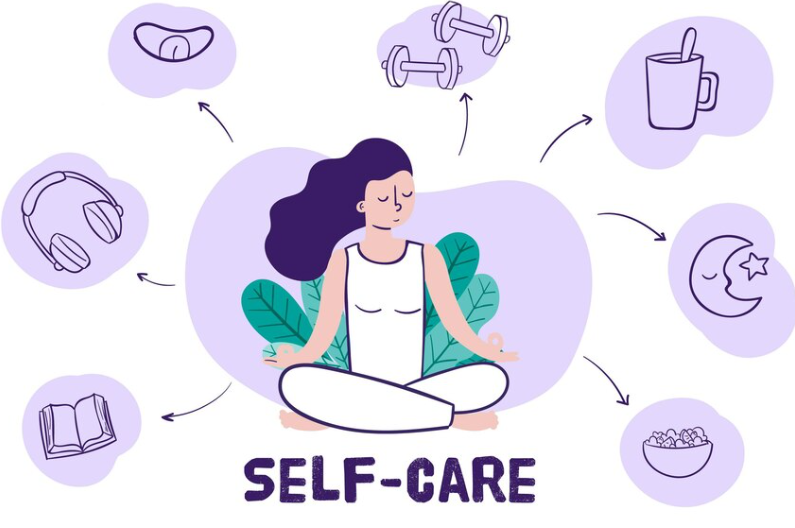It's simple to get sucked into the daily commotion in our demanding and fast-paced environment. From career pressures to family responsibilities, it often feels like there are never enough hours in a day. As stress levels continue to rise, it becomes increasingly crucial for us to prioritize self-care as a means of finding relief from this constant pressure cooker. After all, taking care of ourselves is not only important for our own well-being but also for maintaining productivity and happiness in all aspects of our lives. Get ready to embark on a journey of stress relief and give yourself the care you truly deserve!
Understanding Stress
Before delving into the significance of self-care, let's take a moment to understand stress. Stress is a normal reaction to difficult circumstances, and it can have either a beneficial or bad effect. Positive stress, often called "eustress," can motivate us to accomplish tasks, meet deadlines, and achieve our goals. However, when stress becomes chronic or overwhelming, it transforms into "distress," which can have detrimental effects on our physical and mental health.
Chronic stress has been linked to a wide range of health problems, including heart disease, high blood pressure, anxiety, depression, and weakened immune function. It can also impair our decision-making abilities, hinder our creativity, and strain our relationships. Recognizing the negative impact of stress on our lives is the first step toward making self-care a priority.
The Role of Self-Care in Stress Relief
Self-care encompasses a broad range of activities and practices that prioritize your physical, mental, and emotional well-being. It's a proactive approach to maintaining and enhancing your health while managing stress effectively. Here's why self-care is so crucial for stress relief:
(1) It Replenishes Your Energy:
Chronic stress can drain your physical and emotional energy reserves, leaving you feeling exhausted and depleted. Self-care practices like getting enough sleep, eating nourishing foods, and engaging in regular exercise help replenish your energy levels, making you better equipped to cope with stress.
(2) It Promotes Relaxation:
Self-care activities such as meditation, deep breathing exercises, and mindfulness techniques can activate the body's relaxation response. These practices reduce the production of stress hormones like cortisol and promote a sense of calm and tranquility.
(3) It Enhances Resilience:
Regular self-care builds resilience to stress. When you prioritize your well-being and holistic wellness, you become better equipped to handle life's challenges and setbacks, reducing the impact of stress on your overall health.
(4) It Boosts Mental Clarity:
Stress can cloud your thinking and impair your decision-making abilities. Engaging in self-care practices that promote mental clarity, such as journaling or creative hobbies, can help you think more clearly and make better choices, even in stressful situations.
(5) It Fosters Emotional Well-Being:
Self-care is essential for emotional health. It allows you to process and manage your emotions, reducing the risk of chronic stress turning into anxiety or depression. Activities like spending time with loved ones or engaging in hobbies you enjoy can uplift your mood and provide emotional support.
Practical Self-Care Strategies for Stress Relief
Now that we've established the importance of self-care in stress relief, let's explore some practical strategies you can incorporate into your daily life:
(1) Practice Mindfulness:
Incorporate mindfulness techniques into your day, such as meditation, deep breathing exercises, or progressive muscle relaxation. These practices help you stay grounded and reduce stress.
(2) Prioritize Sleep:
Ensure you get enough quality sleep. Aim for 7-9 hours of restorative sleep each night to allow your body and mind to recover from daily stressors.
(3) Eat Nutrient-Rich Foods:
A balanced diet full of fruits, vegetables, whole grains, lean proteins, and healthy fats will fuel your body. Proper nutrition provides the energy needed to combat stress.
(4) Exercise Regularly:
Engage in physical activity you enjoy, whether it's brisk walking, yoga, swimming, or dancing. Exercise releases endorphins, which are happy, organic substances.
(5) Set Boundaries
Learn to set appropriate boundaries in both your personal and professional life by knowing when to say no. Avoid overcommitting and prioritize your well-being.
(6) Engage in Hobbies:
Allocate time for activities you love, whether it's painting, playing a musical instrument, gardening, or reading. Hobbies provide a sense of accomplishment and joy.
(7) Connect with Others:
Nurture your relationships with friends and family. Social support is a potent stress buffer, providing emotional comfort and understanding.
(8) Unplug and Disconnect:
To avoid information overload, take breaks from social media and other gadgets. Disconnecting allows you to recharge and reduce the stress associated with constant connectivity.
(9) Seek Professional Help:
If you find it challenging to stress relief on your own, consider seeking the help of a therapist or counselor. With the help of a professional, you can learn effective coping mechanisms.
(10) Prioritize Self-Compassion:
Be kind and compassionate to yourself. Acknowledge that it's okay to take breaks and care for your well-being, especially during stressful times.
Conclusion
In the hustle and bustle of modern life, the importance of self-care for stress relief cannot be overstated. It is a must, not a luxury. By incorporating self-care practices into your daily routine, you can reduce the negative effects of chronic stress, enhance your overall holistic wellness and well-being, and regain control over your life. Remember, taking care of yourself is not selfish; it's a fundamental step towards living a healthier, happier, and more balanced life.
Help Center Guide
(1) Is self-care just a trendy buzzword, or does it really work for stress relief?
Answer:- Self-care is not just a trend; it's a vital practice for managing stress. It involves consciously taking time to nurture your physical, emotional, and mental well-being, which can significantly reduce stress levels over time.
(2) What role does spiritual self-care play in the context of healing from stress?
Answer:- Spiritual self-care can be a potent tool for healing from stress, as it allows individuals to find meaning, purpose, and a sense of connection.

